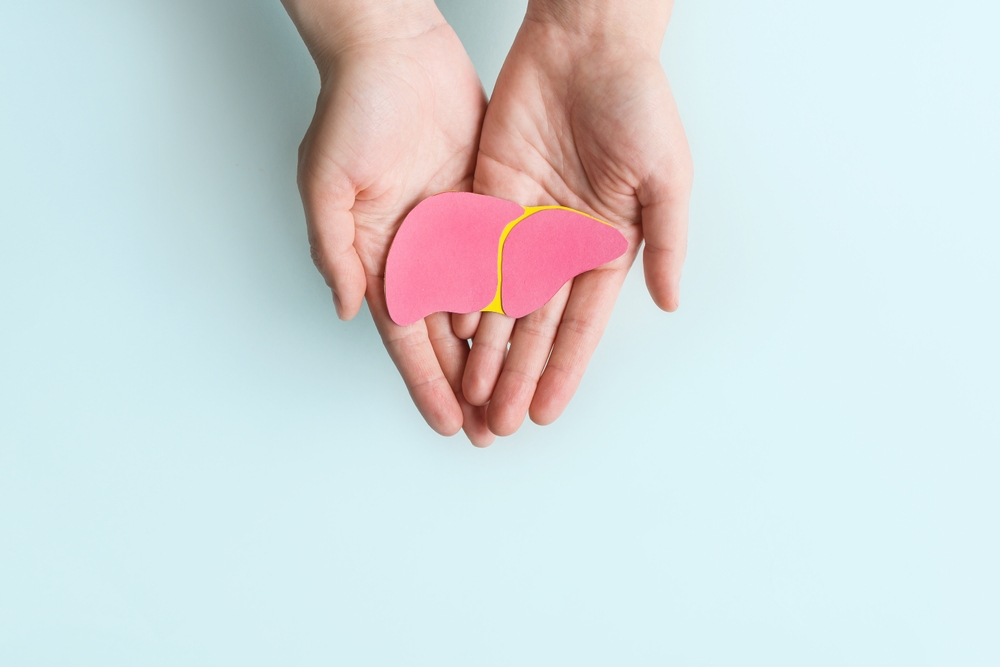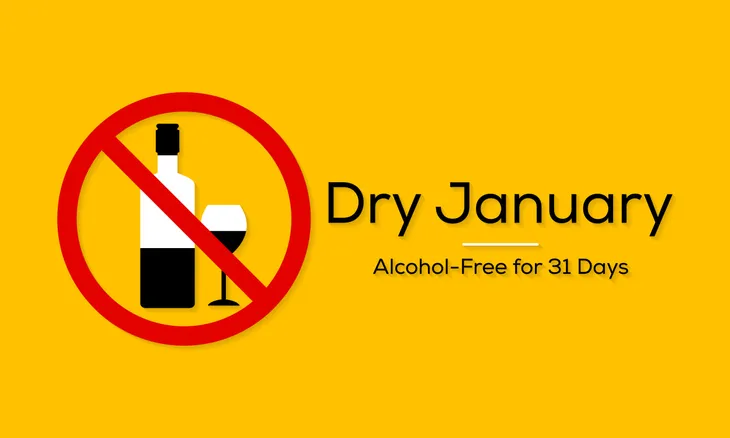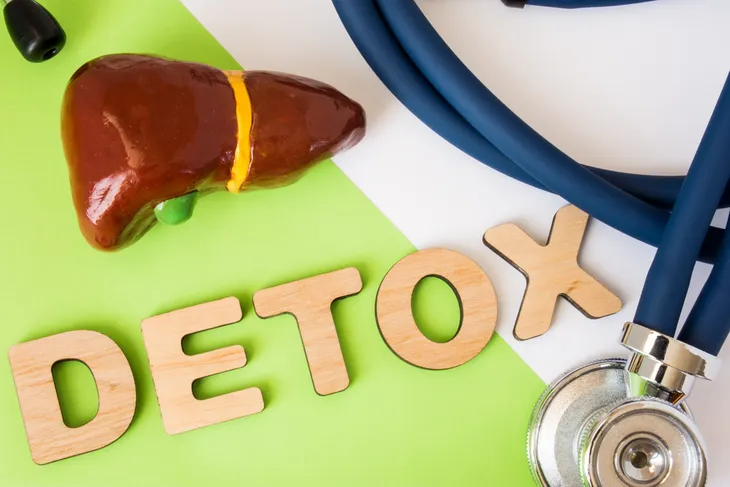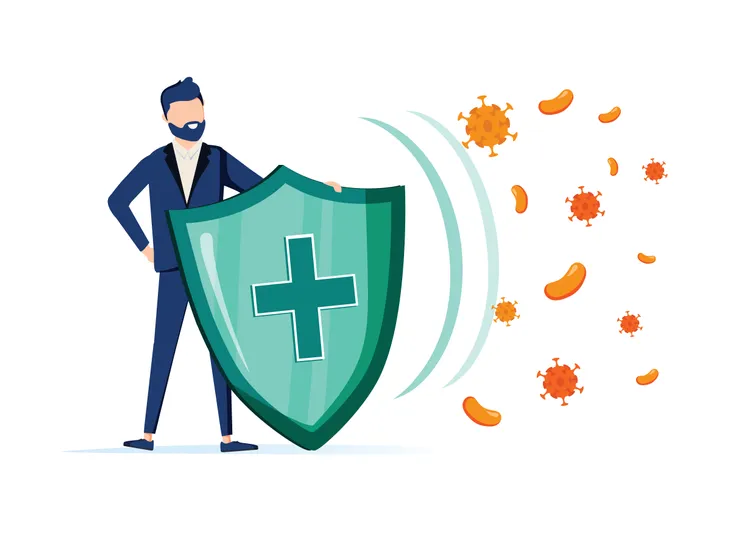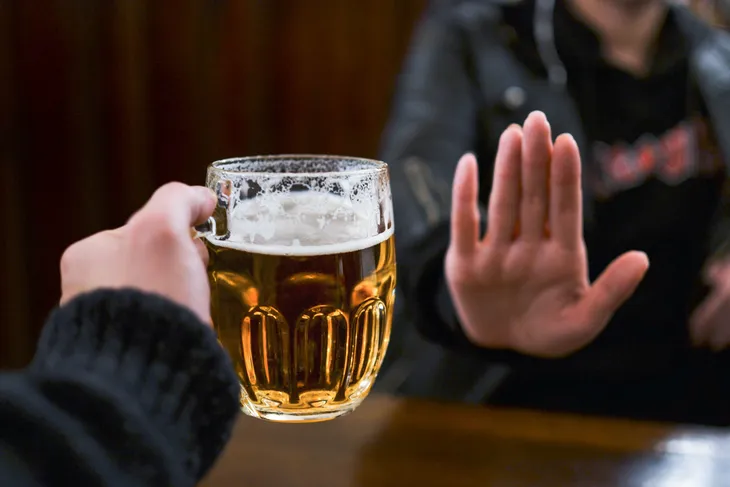As the clock strikes midnight on New Year’s Eve, many of us celebrate the start of a fresh, brand-new year with a drink in hand. With a new year also typically comes resolutions and goals to better ourselves. But that’s not the only thing going on in January. “Dry January” has become an iconic event as tons of people commit to steering clear of alcohol for the entire month. It turns out that Dry January has tons of benefits for your health, too (including your liver).
What Does “Dry January” Really Mean?
Dry January, as the name suggests, means to abstain from alcohol for the entire month of January. The idea actually blossomed in 2013 from a non-profit group known as Alcohol Change UK. The group started the campaign with the primary goal of raising money for alcohol abuse awareness and treatment.
Since the launch of the campaign, it has become a global trend that many people take part in. After all, it’s a great way to start fresh after a month or two of indulging. But it turns out participating in Dry January can benefit your liver too. Let’s take a look at this next.
How Dry January Can Benefit Your Liver
If you regularly drink alcohol, participating in Dry January may be a great way to detox your liver. The primary benefit of alcohol abstinence is it will help reduce alcohol-induced inflammation, says Birmingham Gastroenterology. The source notes, “due to the regenerative qualities of your liver, allowing it a substantial time to heal will ultimately help in the long run.”
It’s worth noting if you suffer from a liver condition such as fibrosis or cirrhosis, the source points out that one month isn’t long enough to heal the scarring. Liver disease sufferers will be better off avoiding alcohol for much longer than one month. The source explains, “the longer you avoid alcohol, the better it is for your liver.”
More Ways to Detox Your Liver
Participating in Dry January isn’t the only way you can detox your liver. Drinking lemon juice in a glass of water each morning is another way you can naturally cleanse your liver. Adding avocados, turmeric, garlic, apples, beets, as well as other healthy foods to your diet can also benefit the liver.
Juice cleanses and liver cleanse supplements may also help you detox your liver. Although it’s important to always consult your doctor before adding new supplements to your diet.
Other Benefits of Dry January
While Dry January can certainly benefit your liver, it can also benefit your health in other ways. You may experience better sleep, more energy, better physical activity, improved mental health, and healthy skin. It might even boost your immune system — something we could all use, especially during these cold, dreary months when sickness is more common. Let’s take a closer look at each of these benefits next.
Benefit: Improved Sleep
Some people might argue that alcohol actually puts them to sleep, and that may be true. But that doesn’t mean you’re getting a good night’s sleep. The Sleep Foundation explains that since alcohol is a sedative, “sleep onset is often shorter for drinkers and some fall into deep sleep rather quickly,” but as the night progresses, your sleep cycle can be disrupted. In turn, this can decrease your sleep duration and create more sleep disruptions, ultimately lowering your overall sleep quality.
By participating in Dry January, you may find that you can achieve a deeper sleep that leaves you more well-rested. Over time, this can leave you feeling more energetic with less brain fog during the day.
Benefit: Improved Mental Health
It’s no secret that some individuals use alcohol as a coping mechanism. Drink a glass (or four) of wine after a long, hard workday — sound familiar? Alcohol is often used to help manage anxiety, depression, as well as a list of other mental health problems but the fact is, while it may provide “a sense of relaxation instantly…the next morning can feel plagued by feelings of anxiety,” explains Women’s Health.
By avoiding alcohol, you may notice an improvement in your mental health. More specifically, you may notice that you’re able to control your emotions better, and your moods may be steadier.
Benefit: Better Physical Activity
Did you make New Year’s resolutions along with your commitment to Dry January? Perhaps one of your goals is to engage in more physical fitness. Well, it turns out Dry January may help you have more energy to work out as well as improve your physical activity.
Women’s Health explains, “if you keep on drinking lots of water when you exercise, without alcohol in your system your hydration levels will be far easier to maintain, resulting in improved blood flow, which is essential for circulating nutrients and oxygen to your muscles.”
Benefit: Glowing Skin
Have you ever woken up from a night of drinking to find your skin dry and puffy? This is a common side effect as the toxins in alcohol can damage your skin.
The good news is that when you give up drinking, along with staying hydrated and participating in regular exercise, you will likely start “noticing that any redness or blotchiness has started to fade and that your complexion is clearer,” says Women’s Health.
Benefit: Increased Focus
With better sleep and newfound energy, you may also find that you can focus better. Women’s Health says this is attributed to your body’s ability to store glycogen (which is essentially energy).
When your body can properly store glycogen, you may find that you have greater endurance and you may feel more alert, says the source.
Benefit: Improved Immune Health
Your immune system has a very important job of protecting your body from outside invaders like germs, bacteria, viruses, fungi, and toxins, explains Johns Hopkins Medicine. So it’s vital that we take care of it.
It turns out, Dry January may help improve your immune health. Self explains, drinking too much can weaken your immune system and one night of intoxication can “acutely suppress immune function, making you more vulnerable to pathogens.” In fact, the National Institute on Alcohol Abuse and Alcoholism (NIAAA) says, “drinking a lot on a single occasion slows your body’s ability to ward off infections — even up to 24 hours after getting drunk.”
Tips to Succeed
Now that you have a better understanding of what Dry January actually is and all the amazing benefits that can come from it, are you convinced to give it a try? Remember, you don’t only have to do it in January. Really, you can do it any month of the year and still obtain the same potential benefits.
If you’ve decided you want to give it a shot, here are some tips to help you succeed and get through the entire month without alcohol!
Make New Habits and Stay Social
When giving up one habit, it might be best to replace it with a new, healthy one so you’re not tempted to go back to drinking. Some great habits to start this month include (but are not limited to) walking, yoga, reading, writing, meditating, painting, or anything else that brings you joy.
Staying social may also help keep you accountable. Tell a friend that you’ve committed to Dry January, perhaps you can convince them to do it with you, and hold each other accountable! Checking in with one another can help keep you motivated too.
Track the Benefits
Another way to stay motivated is to literally track the benefits you’re experiencing. One way you can do this is by journaling daily. Be sure to make note of how you feel physically and mentally.
This way, if you’re feeling unmotivated or tempted to have a drink during the month you can go back and read your notes and remind yourself how avoiding alcohol has made you feel.
Set Boundaries and Avoid Triggering Situations
Finally, another great way to stay on track is to set boundaries. Make sure your friends and family are aware of these boundaries, too. When out with friends or family members, remind them that you’re not drinking right now, and remember, it’s always okay to say “no.”
If saying no isn’t enough,h you may find that you need to remove yourself completely from the situation and avoid triggering situations in the future. This may include avoiding bars and restaurants, or parties. Some individuals may even feel triggered at home when they’re alone. If this is the case for you, call or text a friend to talk or ask them to go out to take your mind off drinking. You can also loop back to starting a new hobby and fill that void with something that will keep you busy (and happy!).
